
At Frontline Hospital, we are dedicated to providing immediate, high-quality care whenever you need it the most. Our 24/7 Emergency Medical Services ensure that expert medical attention is just a call away, no matter the time or day. Whether you're experiencing a sudden medical emergency or require urgent care, our skilled doctors, nurses, and medical staff are always ready to assist with advanced treatments and compassionate care.
Our state-of-the-art facilities are equipped with the latest technology, ensuring that patients receive prompt and efficient medical attention in times of need. From trauma care to heart attacks, respiratory distress to pediatric emergencies, we handle all kinds of urgent health situations with utmost professionalism and care.
We understand the importance of timely medical care, and that's why we prioritize quick response times and seamless coordination in every emergency. Your health and well-being are our top priority.
If you or a loved one require emergency medical services, don't hesitate to contact us at +977-9801266732. Our dedicated team is here to provide the care and support you deserve, whenever you need it. Trust Frontline Hospital for fast, reliable, and expert emergency medical services.
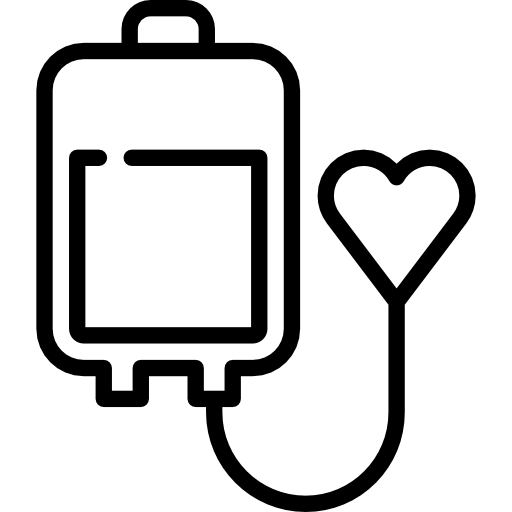
·
Organize
blood donation camp in coordination with club, college, institution etc
·
TTI
screening
·
Hemovigilence
and transfusion reaction
·
Serology
Testing and processing
·
Component
separation
·
Storage
·
Distribution
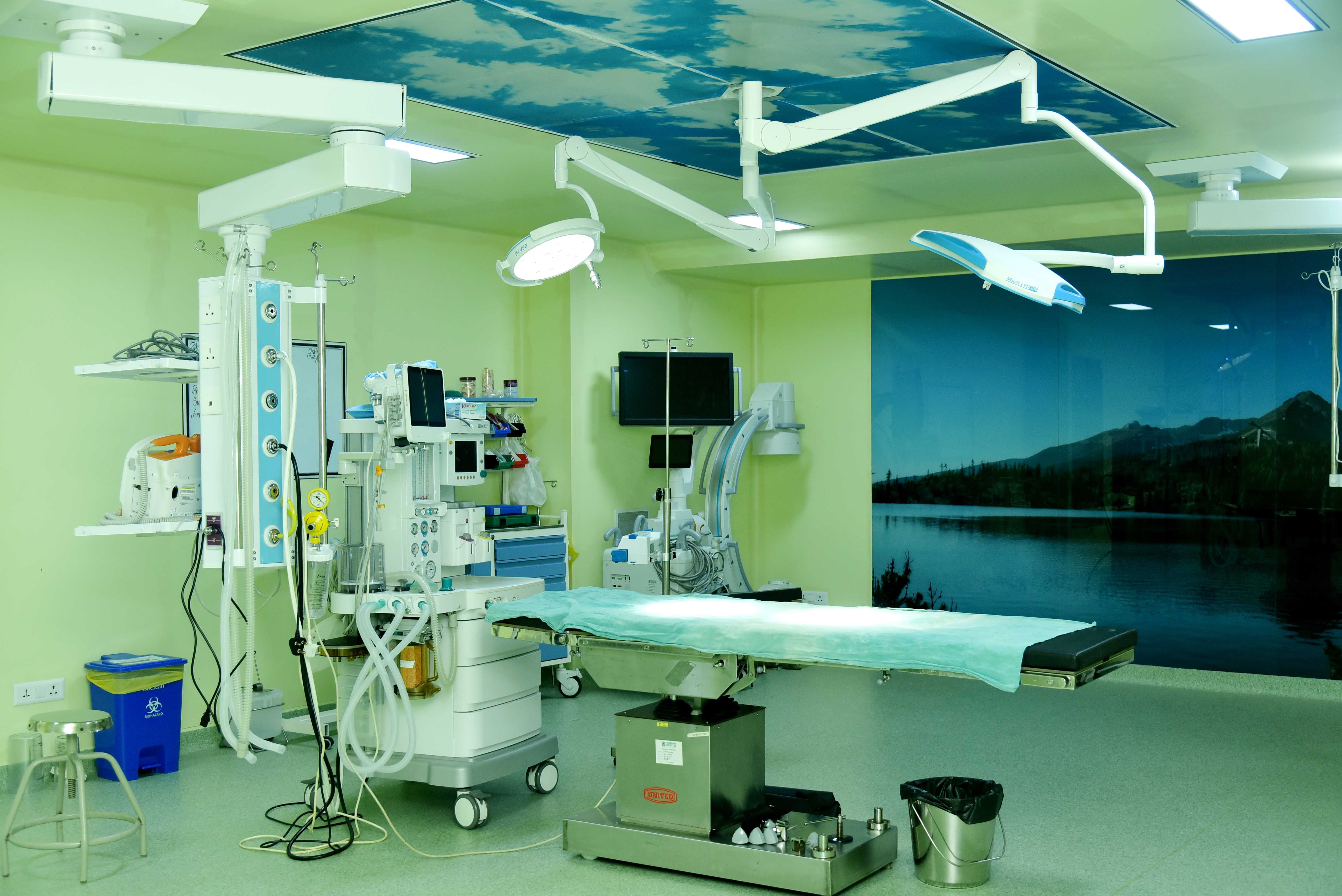
A Modular Operation Theatre (MOT) is a type of specialist surgical facility that is specifically intended to fulfill the demands of contemporary surgical operations. Its infrastructure is modular and configurable. The word "modular" describes the operating room's effortless configuration and adaptation to the demands of various surgical specializations and developing medical technologies. These theaters usually have cutting-edge technology, including as integrated audio-visual systems, anesthetic machines, and cutting-edge surgical lights. Surgical teams can install specialist equipment easily and work more efficiently thanks to the modular architecture.
Laminar airflow systems for sterile environment maintenance, seamless surfaces for simple cleaning and infection control, and integration of cutting-edge communication technology for real-time cooperation and documentation are some of the key characteristics of modular operation theaters. Specialized zones, such a clean zone for patient preparation, a sterile zone for surgery, and a control zone for equipment and monitoring, can all be added to a modular operation theater with ease. Modern technology, such robotic surgical systems and minimally invasive surgical instruments, can be integrated with the modular approach to improve the accuracy and effectiveness of medical treatments.
In general, modular operation theaters are made to offer a clean, cutting-edge, and flexible setting for carrying out a variety of surgical procedures, encouraging patient safety, and empowering medical professionals to provide top-notch surgical treatment.
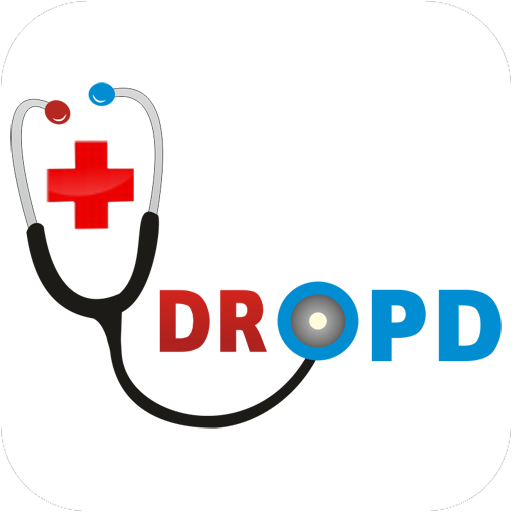
Our Out Patient Departments range are across a verity of medical disciplines, providing expert consultation and treatment with modern art and technologies. Special OPDs are started from 7:00Am to 700PM and General OPD (Registration Fee NRS 250:00) from 10:00AM to 2:00PM every Sunday to Friday.
·
Internal Medicine
·
Urology
·
Gynaecology and Obstetrics
·
Orthopaedics and Traumatology along with Sports Medicine
·
Paediatrics with Vaccination Clinic
·
Dermatology and Veneral Diseases
·
Hepatology
·
Diabetic and Endocrinology
·
Psychiatry
·
Oncology
·
Gastroenterology
·
Neurology
·
Cardiology and Interventional Cardiology
·
Nephrology
·
Pulmonology
·
Ophthalmology
·
General Surgery
·
Neuro Surgery
·
ENT, Head & Neck Surgery
·
Cosmetic/Plastic Surgery
·
Dental and Maxillofacial Surgery
·
Plastic Surgery
·
Paediatric Surgery
·
Mental Health
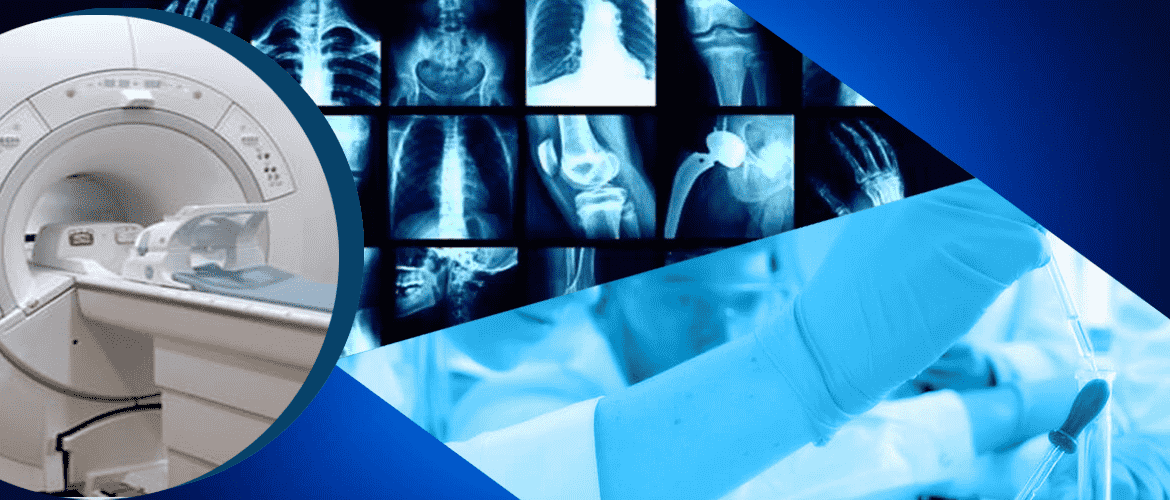
At Frontline Hospital, our Radiology and Imaging Center is equipped with cutting-edge technology to provide precise and reliable diagnostic imaging services. We ensure accurate diagnosis and treatment planning with high-resolution imaging solutions handled by expert radiologists and technicians.
Our Radiology and Imaging Services:
1.5T MRI (Model: Signa Creator)
- High-definition imaging for neurological, musculoskeletal, and vascular conditions.
- Detects tumors, strokes, joint injuries, and spinal disorders with precision.
CT Scan GE Revolution (Model: EVO 128 Slice)
- Advanced 128-slice CT scanner for fast and detailed imaging.
- Essential for trauma cases, cardiac evaluations, and cancer detection.
4D USG (Model: Voluson S10 Expert)
- High-resolution ultrasound for real-time imaging of internal organs and pregnancy monitoring.
- Provides superior image clarity for fetal development assessments and gynecological scans.
DR System Digital X-Ray (Model: XR6000)
- Instant digital imaging for fractures, lung infections, and orthopedic assessments.
- Enhances accuracy with low radiation exposure.
Bone Mineral Density (BMD) Test (Model: Prodigy Advance)
- Evaluates bone health and osteoporosis risks with precise density measurements.
At Frontline Hospital, we are committed to offering advanced, safe, and high-quality imaging services to ensure early disease detection and effective treatment. Our expert radiologists and advanced diagnostic equipment make us a trusted choice for your imaging needs.
For appointments and inquiries, contact us today!
At Frontline Hospital, our Pathology Department is dedicated to providing precise, reliable, and timely diagnostic services to support accurate disease detection and treatment planning. Our advanced laboratory is equipped with cutting-edge technology and operated by experienced professionals to ensure high-quality testing and results.
Our Pathology Services Include:
Biochemistry Analyzer (Model: Vitros 4600)
- Conducts comprehensive biochemical tests to assess organ function, metabolic disorders, and chronic diseases.
- Ensures accurate analysis of blood sugar, cholesterol, liver enzymes, kidney function, and more.
Immunoassay Analyzer (Model: Vitros 3600)
- Provides precise immunoassay testing for detecting hormones, infections, and tumor markers.
- Essential for diagnosing thyroid disorders, cardiac markers, and autoimmune diseases.
Urine Analyzer
- Performs detailed urine tests to detect infections, kidney diseases, and metabolic conditions.
- Helps in diagnosing conditions like diabetes, urinary tract infections, and kidney stones.
Hematology & Blood Testing
- Complete blood count (CBC) and other hematology tests for anemia, infections, and clotting disorders.
- Blood grouping and cross-matching for transfusion services.
Microbiology & Infectious Disease Testing
- Identification of bacteria, viruses, and fungi for effective treatment of infections.
- Culture and sensitivity tests to determine the most suitable antibiotics.
Timely and Accurate Reports
- Fast turnaround times for all tests to ensure prompt diagnosis and treatment.
- Electronic report delivery for quick access by doctors and patients.
At Frontline Hospital, we are committed to provide high-quality pathology services to help patients receive the best possible care. Contact us today for reliable and efficient diagnostic solutions.
Frontline Hospital is proud to be an accredited healthcare provider under Nepal’s Social Security Fund (SSF), ensuring that all eligible contributors can access high-quality medical care through the Medical Treatment, Health, Accidental and Maternity Protection Scheme.
If you are an SSF contributor, you can receive comprehensive health benefits at Frontline Hospital. Our facility is committed to providing the best possible care under this scheme, making healthcare more affordable and accessible for registered employees and their families.
Who Can Avail SSF Health Benefits?
Employees who have contributed to the Social Security Fund (SSF) for at least three consecutive months are eligible to receive medical benefits at accredited hospitals like Frontline Hospital.
Health Benefits Available at Frontline Hospital Under SSF
As an SSF-registered healthcare provider, Frontline Hospital offers the following benefits to contributors:
✅ Inpatient Care: SSF provides coverage of up to NPR 100,000 per fiscal year for hospitalization expenses, ensuring that patients receive high-quality treatment without financial stress.
✅ Outpatient Care: SSF contributors can claim up to NPR 25,000 per fiscal year for treatments that do not require hospitalization, allowing access to consultations, diagnostics, and minor procedures.
✅ Maternity Benefits: Frontline Hospital provides comprehensive maternity care, including pregnancy check-ups, delivery, postnatal care, and newborn nursing services, with expenses covered under the SSF scheme.
✅ Accidental Coverage: SSF provides 100% coverage for hospitalization expenses related to accidents, ensuring contributors receive immediate and high-quality medical attention without worrying about costs.
How to Use SSF Benefits at Frontline Hospital
To access SSF-covered medical services at Frontline Hospital, contributors need to:
1️⃣ Present their SSF ID card or proof of SSF registration at the hospital.
2️⃣ Pay 20% of the total medical bill, as SSF covers the remaining 80%.
3️⃣ Receive top-quality medical care from our expert doctors and medical staff.
Why Choose Frontline Hospital for Your SSF Benefits?
🔹 SSF-Accredited Facility: We are an officially recognized healthcare provider under Nepal’s SSF program.
🔹 Comprehensive Care: From emergency treatments to maternity care, we offer a wide range of SSF-covered services.
🔹 State-of-the-Art Facilities: Our hospital is equipped with modern medical technology and highly skilled healthcare professionals.
🔹 Hassle-Free SSF Claim Process: We ensure a smooth and transparent billing process for SSF contributors. To claim benefits, contributors need to visit the SSF desk to claim benefits and submit (to scan the documents):
1️⃣ Doctor’s prescription
2️⃣ Medical bills (Pharmacy)
3️⃣ Investigation reports (if applicable)
Get More Information About SSF & Your Healthcare Benefits
To learn more about SSF health benefits, eligibility, and services, visit the official Social Security Fund website:
🔗 SSF Official Website
For a detailed list of SSF service rates, check:
🔗 Hospital Rate List
At Frontline Hospital, we are committed to ensuring affordable and high-quality healthcare for all SSF contributors. Visit us today and experience the best healthcare services under the SSF scheme!
Frontline Hospital is proud to be an ECHS-accredited healthcare provider, serving Nepal Domiciled Gorkha (NDG) Ex-Servicemen (ESM) and their dependents. The Ex-Servicemen Contributory Health Scheme (ECHS) is a welfare initiative by the Government of India, offering comprehensive medical services to ESM pensioners, including disabled veterans, family pensioners, and eligible dependents.
Eligibility for ECHS Membership
To avail of ECHS benefits at Frontline Hospital, individuals must meet the following criteria:
- Must have Ex-Serviceman (ESM) status.
- Should be receiving a Pension/Family Pension/Disability Pension from the Controller of Defence Accounts.
- Dependent children: Unmarried/unemployed sons (below 25 years) and unmarried/unemployed daughters (for life) are eligible.
- Dependent parents: Their income should be less than INR 9,000/- (excluding DA).
ECHS Facilities at Frontline Hospital
As an ECHS-empaneled hospital, Frontline Hospital provides a wide range of medical and diagnostic services for ECHS beneficiaries:
General Services:
- General Medicine, General Surgery, Pediatrics, Obstetrics & Gynecology, Orthopedics, ICU & Critical Care, ENT, Dermatology, Dental, Psychiatry, Emergency Services.
Specialized Services:
- Cardiology, Urology, Laparoscopic & Endoscopic Surgery, Neurosurgery, Gastroenterology, Oncology, Rheumatology, Critical Care Medicine, Traumatology.
Laboratory & Imaging Services:
- Clinical Pathology, Biochemistry, Microbiology, Hematology, Histopathology, Radiology (X-Ray, Ultrasound, CT Scan, MRI).
Super-Specialty Services:
- Cardiothoracic Surgery, Advanced Orthopedic Surgery, Nephrology, Neurology, Oncology, Endocrinology.
Why Choose Frontline Hospital for ECHS Services?
- ECHS-Accredited: We are a trusted partner in the ECHS healthcare network in Nepal.
- Comprehensive Care: From primary consultations to specialized treatments under one roof.
- State-of-the-Art Facilities: Modern ICU, surgical, and diagnostic services.
For more details or assistance, contact Frontline Hospital today!
At Frontline Hospital, we redefine critical care with our state-of-the-art Intensive Care Unit (ICU), designed to provide the highest level of medical attention. Our modern infrastructure is equipped with cutting-edge technology, ensuring precision, efficiency, and the best possible outcomes for our patients.
We believe that critical care should be both advanced and personalized. That’s why our ICU is staffed with highly skilled specialists, dedicated to delivering tailored treatment plans that address each patient’s unique needs. From continuous monitoring to advanced life support systems, we prioritize safety, comfort, and rapid recovery.
At Frontline Hospital, we go beyond treatment—we provide compassionate, world-class care in a facility built for excellence.
At Frontline Hospital, we are committed to providing the highest level of care for newborns in need of specialized medical attention. Our Neonatal Intensive Care Unit (NICU) is designed with state-of-the-art infrastructure, ensuring a safe, technologically advanced, and nurturing environment for premature and critically ill infants.
Our NICU is equipped with the latest medical advancements, including high-frequency ventilators, incubators, and real-time monitoring systems to support even the most delicate cases. Every detail of our facility is designed to create an optimal healing space, balancing advanced technology with warmth and comfort.
Beyond our infrastructure, what sets Frontline Hospital apart is our personalized approach to neonatal care. Our team of highly skilled neonatologists, specialized nurses, and support staff work collaboratively to create individualized treatment plans for each baby, ensuring they receive the specific care they need. We also believe in a family-centered approach, keeping parents informed, involved, and supported throughout their baby’s journey.
From the most advanced medical equipment to compassionate, expert care, Frontline Hospital’s NICU is dedicated to giving every newborn the strongest possible start in life. We are not just providing treatment—we are creating a future where every baby receives the best care from the very beginning.
At Frontline Hospital, we are dedicated to providing exceptional critical care for children with our state-of-the-art Pediatric Intensive Care Unit (PICU). Designed to meet the highest medical standards, our PICU combines advanced infrastructure with compassionate, personalized treatment to ensure the best outcomes for critically ill or injured children.
Our cutting-edge facility is equipped with the latest in pediatric medical technology, including advanced ventilators, continuous monitoring systems, and specialized life-support equipment. Every aspect of our PICU is designed to provide precision-driven, high-quality care in a safe and child-friendly environment.
At Frontline Hospital, we understand that pediatric critical care requires more than just advanced technology—it demands a personalized and family-centered approach. Our team of experienced pediatric intensivists, nurses, and support staff work around the clock to deliver customized care tailored to each child’s unique needs. We also prioritize family involvement, ensuring that parents are well-informed, supported, and included in their child’s care journey.
With a commitment to innovation, excellence, and compassionate service, our PICU at Frontline Hospital is more than just a medical facility—it is a place where children receive world-class treatment with warmth, expertise, and unwavering dedication.
At Frontline Hospital, we set the standard for excellence in surgical care with our state-of-the-art Operation Theatres (OTs) and advanced surgical services. Our modular operation theatres are designed with cutting-edge infrastructure, offering a fully aseptic environment to ensure the highest levels of safety, precision, and infection control.
Our operation theatres are equipped with the latest in surgical technology, including high-definition imaging, advanced anesthesia workstations, and real-time monitoring systems. The modular design allows for superior airflow control, sterile conditions, and seamless integration of surgical equipment, creating an optimal setting for a wide range of procedures—from minimally invasive surgeries to complex, high-risk operations.
Beyond technology, what sets Frontline Hospital apart is our personalized approach to surgical care. Our team of expert surgeons, anesthetists, and specialized support staff work collaboratively to deliver individualized treatment plans tailored to each patient’s unique needs. We prioritize patient safety, comfort, and faster recovery, ensuring a seamless surgical experience from pre-operative preparation to post-surgical care.
With a commitment to innovation, precision, and patient-centered care, our operation theatres at Frontline Hospital provide a world-class surgical environment where expertise meets compassion. Whether undergoing a routine procedure or a complex surgery, patients can trust us to deliver the highest standards of care with excellence and dedication.
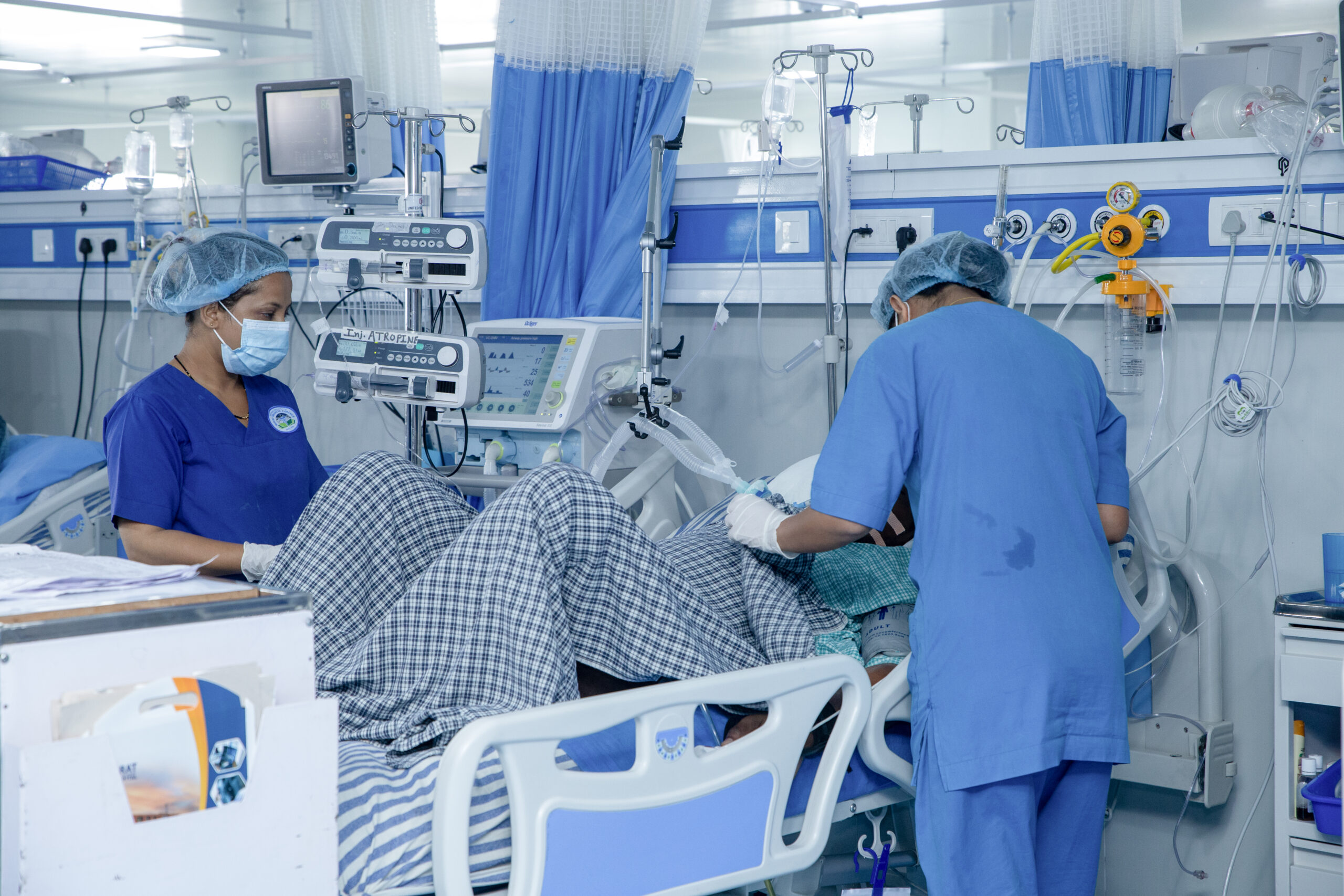
At Frontline Hospital, we redefine inpatient care with our state-of-the-art Inpatient Department (IPD), designed to provide comfort, safety, and world-class medical attention. Whether patients require short-term observation or extended hospitalization, our modern infrastructure ensures a healing environment that caters to diverse medical needs.
Our IPD offers a range of accommodation options to suit individual preferences and medical requirements:
- General Ward: A well-equipped, hygienic, and comfortable space designed for patients who require shared yet quality care. Our general wards maintain high standards of infection control and patient safety while providing compassionate treatment.
- Cabins: For those seeking enhanced privacy and comfort, our private cabins offer a quiet, personalized setting with essential amenities, ensuring a more peaceful recovery experience.
- Suite Rooms: Our luxury suite rooms provide the ultimate in patient comfort, featuring spacious interiors, premium furnishings, and dedicated nursing care. Designed for those who seek a home-like experience while receiving advanced medical treatment, our suites offer privacy and top-tier service.
At Frontline Hospital, we combine cutting-edge medical expertise with personalized patient care. Our dedicated team of doctors, nurses, and support staff work around the clock to ensure a seamless inpatient experience, prioritizing patient well-being and recovery.
With a focus on innovation, comfort, and excellence, Frontline Hospital’s IPD is more than just a medical facility—it’s a place where healing is supported by compassionate care and world-class infrastructure.

-
Here at Frontline Hospital, we aspire to provide outstanding healthcare services
to all our patients.
Therefore, we request you to kindly follow the following regulation while visiting
your patients.
- Keep your mask on all the time.
- Use hand sanitizer or wash your hands before coming in contact with patients
- Children below 10 years of age are not allowed to enter the hospital wards.
- Visiting hours, usually from 10:00 AM to 8:00 PM. Please check with the hospital for specific hours.
- Number of visitors: Some hospitals limit the number of visitors per patient, so it's best to check with the hospital beforehand.
- Visitors should wear comfortable and clean clothing, and avoid wearing any clothes that could pose a hazard to others.
- Visitors may be required to undergo a health screening before entering the hospital, including a temperature check and questions about any symptoms.
- Quiet environment: Hospitals are typically quiet environments, so visitors are asked to speak softly and keep their voices down in order to avoid disturbing other patients.
- No food or drinks: Some hospitals may have restrictions on bringing food or drinks into patient rooms. Please check with the hospital for specific rules.
- Smoking is typically not allowed in or near hospital buildings.
- The use of mobile phones is typically restricted in certain areas of the hospital, such as ICU or patient rooms, to minimize disruption to other patients.
- Information about parking options, including any fees, is usually available at the hospital's main entrance.
- 100 bedded super multispecialty hospital
- Renowned senior consultants and team
- 24×7 Emergency and Trauma Care (With Air and Road Ambulance)
- Modular operation theatres with the fully aseptic environment
- Two CSSD Rooms for absolute sterility
- “A” grade laboratory, diagnostic service, and blood bank.
- Best Radio imaging technology.
- Architectural design is suitable for all patients.
- Comprehensive Pediatric and Neonatal Care..

